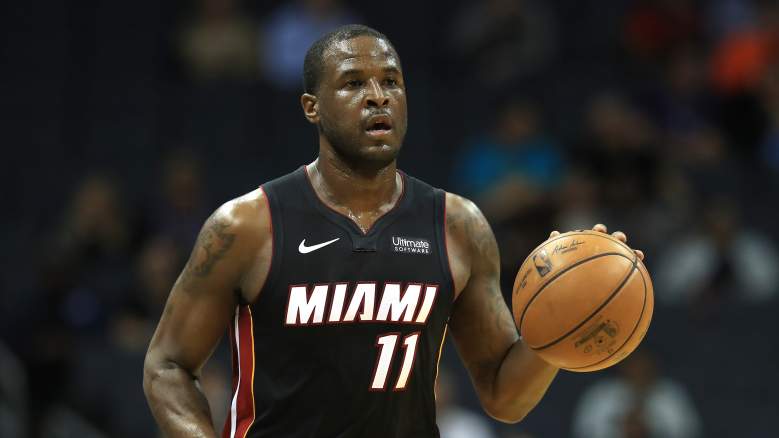
Getty Dion Waiters, now a Laker
During the NBA’s hiatus because of the coronavirus, players were still subject to be drug tested, a policy that holds during the offseason as well as during the league’s playing schedule—six random tests (four during the season and two in the offseason) can be administered each year to every player per the collective bargaining agreement.
But according to multiple reports, the league and the players association have agreed that there will be no drug testing as long as the NBA’s season remains suspended, which is slated to be at least through April 12 though is reportedly expected to last into June. As SNY’s Ian Begley wrote, “In theory, if a tester is infected with coronavirus, it could be passed along to a player.”
Chris Haynes of Yahoo! Sports first reported the move and wrote that “the agreement is only temporary.”
The NBA has been working with the union to make arrangements on a number of topics, including allowing limited travel for players, protocol for group and individual workouts at team facilities (as well as off-site facilities) and putting a moratorium on player transactions.
Three NBA Players Tested Positive for Coronavirus
Currently, three NBA players have thus far tested positive for coronavirus since March 12, when the first case came to light: Rudy Gobert (the first) and Donovan Mitchell of the Jazz, and Christian Wood of the Pistons.
Hopes that the crisis incited by the virus might subside sooner than expected faded this weekend when the Centers for Disease Control listed new guidance for dealing with the coronavirus in the U.S., which included a strict view on “mass gatherings” for the next eight weeks. The NBA is expected to abide by those guidelines.
Via the CDC website:
“Large events and mass gatherings can contribute to the spread of COVID-19 in the United States via travelers who attend these events and introduce the virus to new communities. Examples of large events and mass gatherings include conferences, festivals, parades, concerts, sporting events, weddings, and other types of assemblies. These events can be planned not only by organizations and communities but also by individuals.
“Therefore, CDC, in accordance with its guidance for large events and mass gatherings, recommends that for the next 8 weeks, organizers (whether groups or individuals) cancel or postpone in-person events that consist of 50 people or more throughout the United States.”
On Monday, President Donald Trump suggested that group gatherings be limited to 10 people.
Dion Waiters’ Drug Case A Rarity in NBA
Most suspensions in recent years have been for performance-enhancing drugs, not recreational narcotics.
During the course of the 2019-20 NBA season, the league handed out three major suspensions—25 games—for violations of its policy. In all three cases, the use of a banned performance-enhancing substance was indicated:
- Wilson Chandler of the Nets tested positive for the growth hormone Ipamorelin in August.
- Suns center Deandre Ayton tested positive for the use of a diuretic, which is banned because athletes frequently take them to flush out other performance-enhancing substances.
- Hawks forward John Collins tested positive for taking GHRP-2, a recently discovered growth hormone that helps spur food intake.
The NBA remains the only league that still can suspend players for the use of marijuana, which is legal in many of the league’s cities. A player must fail a test three times to warrant a five-game suspension, however. The player must submit to counseling after one failed test and is fined $25,000 after a second failed test before a suspension can be levied.
Recently signed Laker Dion Waiters, while with the Heat earlier this season, received a suspension of 10 games after a panic attack on a team flight stemming from his consumption of an edible gummy THC product. That was not the result of a failed drug test, however, and was a team suspension, not a league suspension.
READ MORE: Carmelo Anthony on NBA Player Finances: ‘It’s Going to Get Really, Really Bad’